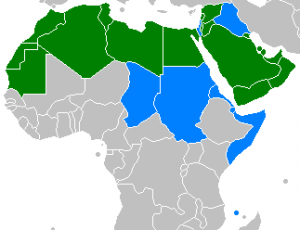
Although Arabic is the official language, French is the language of business, and many business people also speak English, Italian or German.
English and German are spoken in major cities and French is less common in the south.
As a result of this linguistic diversity, business cards should be bilingual: Arabic – French, and, if possible, it would be better to have 2 cards: English-Arabic and English-French.
It is also important to know that most people practice Islam and unlike other religions, Islam regulates the personal, social, political, economic and legal status of all who dwell in Tunisia, even if they are not Tunisian. For the same reason, during Ramadan all Muslims fast from dawn to dusk and work fewer hours than regular days. It is important you know this because everything is greatly affected during Ramadan and many services work reduced schedules.
Another point to consider is that for Arabs, Friday is a holy day, so Friday is not considered a business day or, at best, working hours on Friday are reduced as if a holiday to Western countries. And, unlike many other Arab countries, the weekend is Saturday and Sunday.
Egypt is located in the northeast of Africa and is one of the most populous African countries.
For centuries, Egyptian Arabic has been the official language. The Egyptian version of the Arabic language is dominant in the Arab world, due to the strong participation of Egypt’s media and education in this language.
The Nubians speak the ancient Nubian language and the Berber language is used in several settlements in the western desert oasis.
Most Egyptian schools teach English and French.
For this reason, it is also recommended to translate the business cards on one side in Egyptian Arabic and the other side in English or French.
Similarly, if you need to send a schedule of activities or any material prior to a future meeting, it is best to send it in English and Egyptian Arabic.
In addition to the translations themselves, you should keep in mind that Friday is the holy day in the Muslim world. And unlike Tunisia, but similarly to the rest of the Arab countries, Thursday and Friday are the Arabic. weekend. Because of this, in most cases, Thursdays and Fridays there is no work; there are occasions where work will be done, but at a reduced schedule.
Any questions about translations in Arabic, send it to “Translation Services.”
(Spanish version: https://www.trustedtranslations.com/mundo-arabe-tunez-y-egipto-2011-02-02.html)





